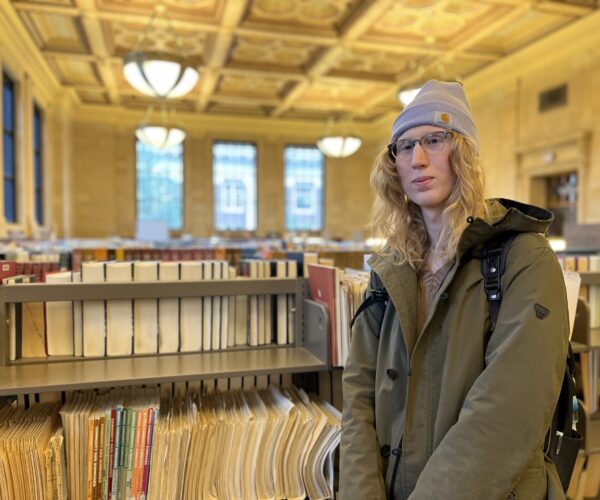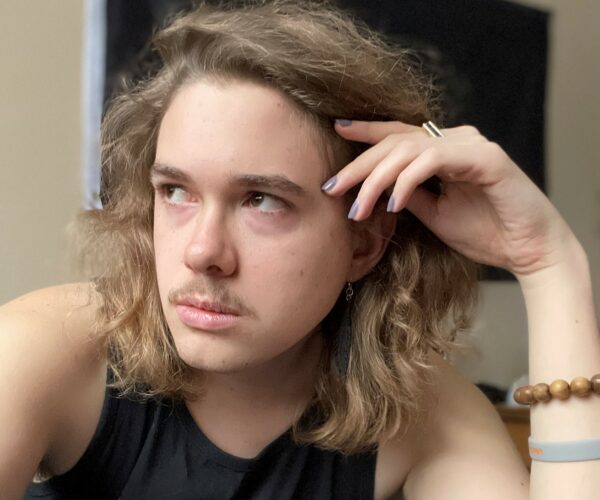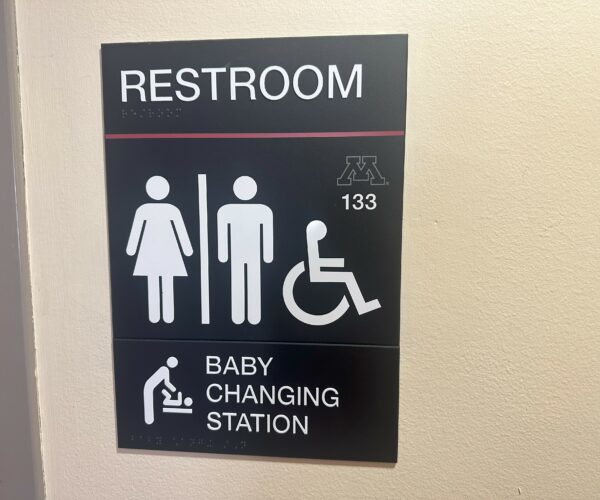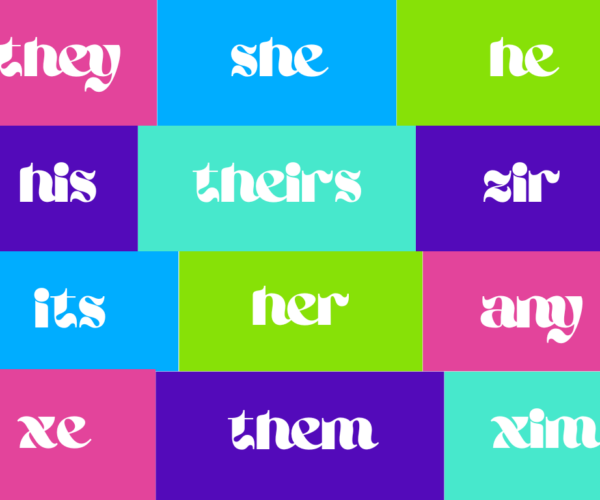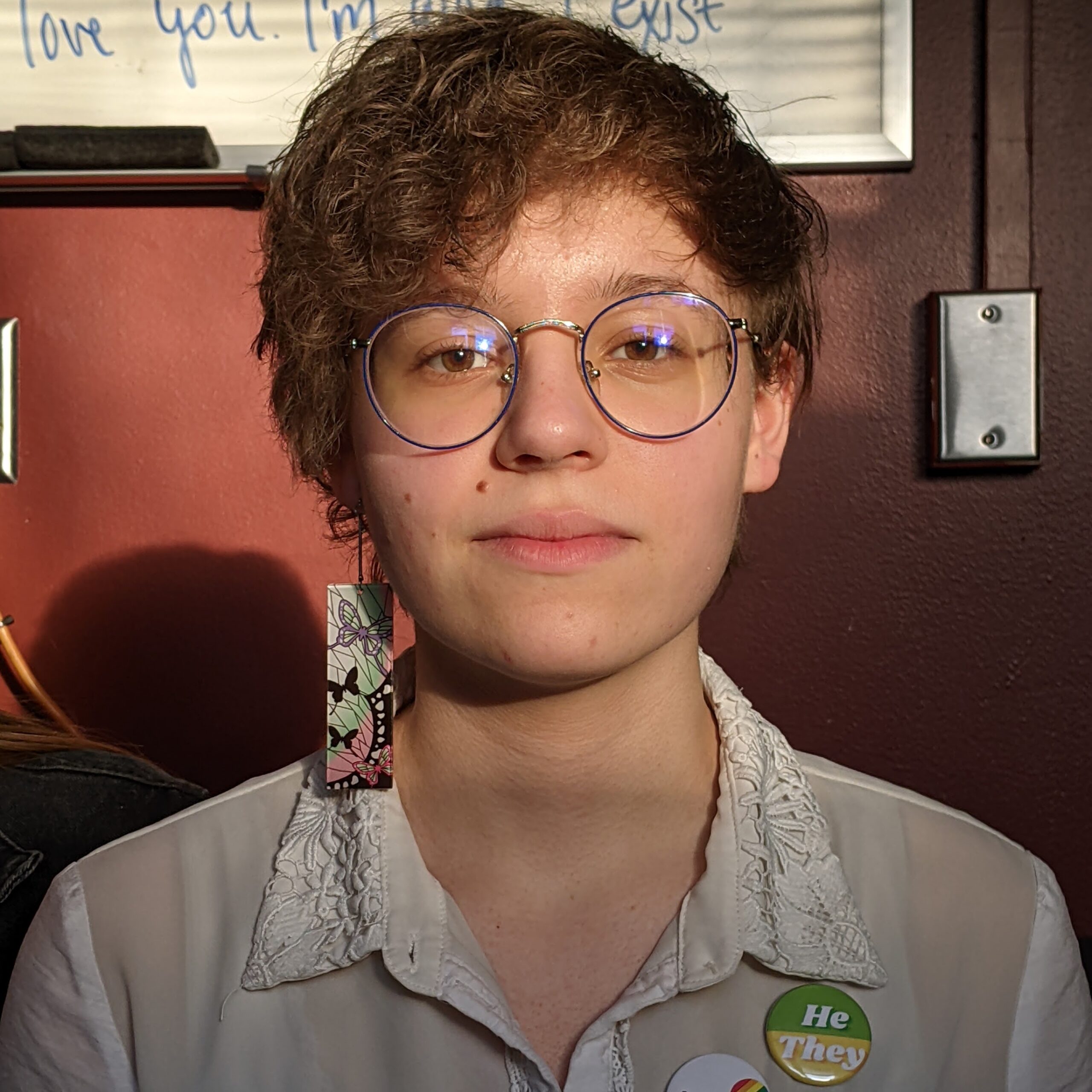Dante Rocío is a first-year bachelor of individualized studies (BIS) student focusing on creative writing, linguistics, philosophy and global studies. They are also a QSCC space monitor and a GSC peer co-facilitator.
“I’m a non-binary person, to be more specific libramasculine, which means mostly agender with a connection to the feeling of masculinity – in my case, delicate masculinity, whatever that will mean to certain people. This also makes me a trans person in general, since my gender identity is all but the gender I was assigned at birth.
I’m an asexual person, a panromantic person and quasiromantic person, which is not a very common term. Aside from being capable of experiencing and harboring the traditionally understood definition of romantic affection, you can also do it and reciprocate it in very nontraditional forms, like spiritual affection, aesthetic affection and so on. Sometimes [these affections] might be even stronger and happen more often than traditional ones. I’m a sex positive sex repulsed person – sex repulsed in that it doesn’t sound really well to me. I’m more positive about discussing topics of sexuality and I want to learn how it works for other people, but I’m only here for expressions of affection that are not typically what you would do during full-on sex.
A happy experience I’ve had in relation to queer topics happened in my Arabic class. I’m in the Beginning Arabic II class and we have a very great teacher, actually my favorite of the current Arabic teachers. She really supports me in being able to express myself as I am in our class. During fall semester, folks had some difficulties with referring to me as anything other than she/her. Sometimes I myself wouldn’t say much because I didn’t want to seem insulted – I know no one who misgenders me does it to hurt me or anything. My teacher has been really helpful with this. For example, gender is a thing grammatically in Arabic as well, and when she was giving examples using people in the class. She was saying, ‘If I’m talking to [this student] I’m going to use the female part, but if I’m talking to Dante I’m going to use the masculine part.’ In a nice way she was reminding the class that I use the Arabic masculine form. That was really nice for me.
If there’s a community relating to philosophy, spiritual stuff, linguistics, or poetry, I’m going to be there as well. I’m a poet, not only by just what I’m doing, but I also put it as a part of my identity. I’m a religious syncretic, which means your religious identity is made of more than one religion. Knowing there are spaces that are also non-homogeneous when it comes to spiritual and religious things means a lot to me.
Also, I’m a cosmopolitan. The national identity and citizenship I was given at birth are not part of my identity, just like this thing of gender, you know, being assigned one thing that you’re actually not. The cultures and languages that I’ve met along the way in my life have come to mean a lot to me; the languages I have come to study have become a very important part of my psyche. I was paying for a psycholinguist to analyze me because I sometimes don’t get how my brain works with so many languages affecting so many different parts of my identity (I speak six languages conversationally!) If I meet some communities that are cultured as one of those that are also close to me, I’ll be eager to be there as well. If there are parts I don’t know [about a culture] I make sure to educate myself the best possible because they’re important to me. I see myself as a citizen of the world.
I’m finding a community for most aspects of my person. Maybe not all of them, but in other aspects I try to make up for it myself to my own person because I have to remember that I shouldn’t have my happiness and validation depending on anyone else.”
This interview has been edited for length and clarity.
Interview conducted by Sommer Wagen.
